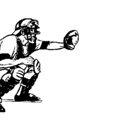|
usernamen_01 posted:Hey, PLCs are a field I am trying to enter after the Navy. Do you recommend anything as far as professional certifications or classes/coursework that would help me learn how to program, operate, and troubleshoot them? The only class I had that helped were my digital logic classes where we learned about logic gates (and/or/not) and state machines, we used VHDL and verilog in those classes. I never had any formal PLC or ladder logic courses, I just kind of stumbled into the job I have now and I was paid to play around with a PLC and get the hang of it. Luckily that kind of stuff just came easily to me. Sorry I can't really be of any help.
|
|
|
|

|
| # ? May 17, 2024 11:37 |
|
KetTarma posted:What made you want to go into PLC programming? A relative of mine has offered me a position working at his company as, what I imagine, will be an assistant to one of the engineers or a technician. His company manufactures generator and low-voltage control systems. PLCs and VFDs are his bread-and-butter. Do you know anything about the technology as a whole and where it is going? dxt posted:The only class I had that helped were my digital logic classes where we learned about logic gates (and/or/not) and state machines, we used VHDL and verilog in those classes. I never had any formal PLC or ladder logic courses, I just kind of stumbled into the job I have now and I was paid to play around with a PLC and get the hang of it. Luckily that kind of stuff just came easily to me. Sorry I can't really be of any help. Nice, I'll look into both of those. Thanks for the help. usernamen_01 fucked around with this message at 10:44 on Sep 25, 2013 |
|
|
|
usernamen_01 posted:A relative of mine has offered me a position working at his company as, what I imagine, will be an assistant to one of the engineers or a technician. His company manufactures generator and low-voltage control systems. PLCs and VFDs are his bread-and-butter. Do you know anything about the technology as a whole and where it is going? It depends on the specific PLC product they use but you could be programming in a couple different "styles" for the PLC. You've got: - Ladder logic (best for discrete inputs and outputs, bit of a bitch to do something like chiller sequencing on variable flow + PID control) - Sequential block programming (kinda like ladder logic but with blocks, bit more flexible) - Visual block programming (good for feedback control loop coding) - hybrid ladder / block (supposedly the best of both worlds, but can be cumbersome and unintuitive) You can always ask what product they use, and if they have any spare ones floating about you can borrow (or find a cheap one online if possible) along with the programming tool if you don't have to pay a license. From there you'll be able to read documentation plus simulate the code you've written. Personally I prefer visual block programming as it's simple to understand and more importantly when I'm finished with the job a service tech can handle it rather than calling me up to ask for every little code change they want to make on site. As for VFDs / VSDs: They're all usually pretty stock standard but will have slight variations on power / reliability depending on if they're commercial or industrial grade. You'll have a range of manufacturers like ABB, Mitsubishi, Vacon etc. They come with a bunch of options such as having a high level interface (modbus / bacnet / whatever) which is usually either an RS-485 comms or TCP/IP version for control and monitoring, although for critical applications you can mix and match high and low level cabling (HLI + 0-10V / 4-20mA signal for speed / feedback, contacts for start / stop etc.) to the I/O of your controller. You can also wire sensors direct to the VFDs for single input single output control loops and just use the HLI on the drive to set it's setpoint and tuning parameters and it will handle it's feedback control on it's own. My background is being an electrical / controls engineer in building services. Primarily HVAC for datacentres, hospitals, pharmaceuticals, critical infrastructure and things like art galleries. There's always a lot of feedback control with multiple pumps, fans, chillers whatever all being driven to satisfy all sorts of conditions. I've had experience programming Hitachi, Schneider, Honeywell and Siemens PLCs and once you kinda get your head around it; they're more or less the same but with different bells and whistles (we mostly use Direct Digital Controllers "DDCs" though, which are cheap poo poo controllers, in comparison PLCs are bulletproof). I've had plenty of experience in fire and security systems as well but they're a different kettle of fish and not as much fun to be honest. We interface with generator systems alot too, especially with the advent of tri-generation plants (generator + absorption chiller) and the experience I've had with the genset guys is usually that the majority of their issues aren't so much to do with the controls, but more to do with the mechanical side of the plant. edit: if I can somehow scam a PLC from work I'm totally going to be trying to automate my own micro brewery.
|
|
|
|
C-Euro posted:Any goons in here feel like sharing their thoughts on Chemical Engineering? I just finished a Master's in Chemistry where I was on a PhD track until I realized I didn't like/was bad at straight lab work and research and no longer wanted to be a professor. Right now I'm trying to find work but my girlfriend thinks I would good at engineering and should get a degree in it. Right now I'm broke and not really looking to go back to school or take out the loans to do so, but maybe in a few years once I'm on my feet again it could happen. I've been working as a chemical engineer for about 4 years now so I'll give you my perspective on what it is like to actually be a chemical engineer. I am currently with a gigantic company in a department that is making lots of investments in the US and elsewhere - I work in process design, so its a pretty sweet deal. There's a few general categories for the tasks that chemical engineers do in the company that I work for, which I think are fairly standard for large companies that you might eventually find yourself at: Plant Work: Making sure that the plant is running well. Day to day troubleshooting activities. Figuring out why poo poo is broken and fixing it as fast as possible. Probably in charge of supervisor operators. At the very least, works with the plant operators all the time to better understand how things are going. Can be high stress with pressure to meet production quotas, being on call and getting called up in the middle of the night, and so on. Probably the least "technical" niche to fill. Improvement/Optimization: Figuring out how to make things better, more in the form of longer-term projects than immediately fixing things that are broken to keep the plant running. Involves working with day to day operations to understand the process well, but needs a higher level perspective to identify major changes that could take place. Lots of cost estimating, NPV calculations, and so on to determine viability of projects and prioritize improvements. Needs to know the basics of equipment design for initial cost estimates, but not the fine details required to actually spec something out and buy it. Process Design: The most technically demanding sort of work. This is what I have done the most of so I am probably a bit bias, but doing this is the reason I studied chemical engineering, and it is what I like doing the most. I use things I learned in school every drat day - pretty much all day - to design piping systems, pumps, heat exchangers, reactors, agitators, and every other thing you might find in a chemical plant. Lots of material and energy balances and simulations as well for the design of the overall process. These 3 types of roles are often combined depending on the company's organization and size. At the other extreme is the one dude who is only engineer at an ethanol plant in the middle of Nebraska, then you just have to do everything. Everything takes great communication skills and time management to do well. Chemical engineers can easily move into management, sales, or whatever they are inclined to do. As far as school, it can be pretty soul crushing, as with any engineering degree. Expect to spend just about every waking hour doing homework or studying if you want to make it out alive. With a degree in chemistry at least you have the chemistry courses done with, but the chemical engineering classes are quite a bit different. Chemical engineering relies heavily on thermodynamics and transport properties...something like P chem is essentially useless (although I did have to take it and thought it was kind of cool). Off the top of my head, your core classes are going to be fluid flow, mass transfer, heat transfer, separations, numerical methods, and some senior design type classes which touch on cost estimating. Chemical engineering can pay VERY well right out of school with a 4 year degree, but the ceiling is fairly low unless you move into management. Also it is very difficult to get a job unless you do some kind of internship, so make the school you are thinking about going to understands and supports that. Overall I would say that it isn't something you should probably do unless all of this sounds extremely appealing. There are much easier ways to make a living, but you should have already known that when you started reading this thread.
|
|
|
|
Well, P Chem was always my favorite (though I'm surprised that thermo is useless if you're learning mass and heat transfer) but that sounds about 95% engineering and 5% chemistry. I'll file that idea away for now.
|
|
|
|
Thermo is very useful as a chemical engineer...physical chemistry, not so much. But you are right about the split between engineering and science. It would not be unusual for me to go months without doing anything more complicated than freshman general chemistry.
|
|
|
|
I got an unsolicited LinkedIn message from a recruiter for a pretty sexy consumer electronics company for a short-term internship. I'm in grad school and am busy with other stuff for the time being, so I told the recruiter I wasn't interested right now. But the weird thing is that the job title that was mentioned had the world "technician" instead of "engineer." Granted my LinkedIn profile doesn't get a lot of views and is kind of lovely, but should I be worried if this is the kind of interest I'm generating?
Shear Modulus fucked around with this message at 19:56 on Oct 7, 2013 |
|
|
|
A lot of recruiters just spam everyone on LinkedIn who looks remotely qualified. I wouldn't worry about it too much.
|
|
|
|
BeefofAges posted:A lot of recruiters just spam everyone on LinkedIn who looks remotely qualified. I wouldn't worry about it too much. This. I currently work as a technician in the field I'm studying, and I'll get messages about jobs that require 10+ years of full-engineer experience + a degree. A lot of recruiters are just blasting to see what they get.
|
|
|
|
My LinkedIn expressly states what I am interested in location/field-wise. I regularly get poo poo like "DO YOU WANT TO BE AN ELECTRICIAN ON AN OIL RIG?!?"
|
|
|
|
Kind of a long-shot here, I've recently graduated with my M.S. in materials science and I'm trying to break into the oil and gas industry. If anyone has any advice I would appreciate it (can PM if you prefer). Since I've started applying for jobs I've learned about relevant certifications (NACE, API, etc) however I haven't seen many opportunities to get these sorts of certifications and the roles that materials engineers fulfill are rather niche, with few entry-level postings. The obvious answer here is to have relevant co-op/intern experience, but I was not interested in the industry before. I know the answer is probably that it's not going to be easy, but I'm more wondering if I should pursue obtaining certification as a job-seeker (classes are expensive or dedicate time for self-teaching) or try to start with a temp position with inspection etc. If anyone has any thoughts feel free to chime in.
|
|
|
|
Hollis Brown posted:Kind of a long-shot here, I've recently graduated with my M.S. in materials science and I'm trying to break into the oil and gas industry. If anyone has any advice I would appreciate it (can PM if you prefer). Since I've started applying for jobs I've learned about relevant certifications (NACE, API, etc) however I haven't seen many opportunities to get these sorts of certifications and the roles that materials engineers fulfill are rather niche, with few entry-level postings. The obvious answer here is to have relevant co-op/intern experience, but I was not interested in the industry before. Practically 100% of everything learned in the oil industry is on the job, with a little formal training. I would recommend getting a job that can build the skills and also check off the training boxes. I don't know how possible it would be to get a job as an entry level Facility Engineer at a large companies, because they might not require an engineering degree and very few people know much about facility engineering right out of school.
|
|
|
|
I would hit up a job fair that schlumberger (may have misspelled that) is at and get an interview. They were hiring like crazy in 08 when I finished school. They were looking at mechs and civils but I think you could fit in. If their program is the same you spend 3 years in the field with 7 other dudes in bum gently caress north Dakota. Working poo poo hours for a lot of money. After that you get into a better roll. It seemed like a good deal back then but I didn't go that route.
|
|
|
|
Hollis Brown posted:Kind of a long-shot here, I've recently graduated with my M.S. in materials science and I'm trying to break into the oil and gas industry. If anyone has any advice I would appreciate it (can PM if you prefer). Since I've started applying for jobs I've learned about relevant certifications (NACE, API, etc) however I haven't seen many opportunities to get these sorts of certifications and the roles that materials engineers fulfill are rather niche, with few entry-level postings. The obvious answer here is to have relevant co-op/intern experience, but I was not interested in the industry before. Just out of curiosity (I'm not in oil) are you materials science or materials engineering or materials science and engineering? It was my undergrad and I haven't used it, and was always wondering if anyone besides academics actually saw the difference between the three. Oh the future was bright for that major in the late 90s early 00s, with promises of Intel cleanroom suits or composites or metallurgy CatchrNdRy fucked around with this message at 05:30 on Oct 8, 2013 |
|
|
|
Well if you want to work for Intel, you need MS or better. If you want to work in metallurgy, MS is also helpful, but not necessary if you work in a plant. I don't know that there's too much practical difference between Mat Sci, Mat Eng, and MSE when it comes to actually getting a job. It's much more your experience that's going to matter, really, especially in relation to the type of work you're looking to do.
|
|
|
|
Am I a total idiot for thinking I could go back to school for engineering at age 25 with no prior science or math background? I am a grant writer with a double major in anthropology and advertising. I am very unhappy with my work, and in brainstorming possible options I realized that I might actually enjoy engineering. I took a look at every work or school project I've really enjoyed doing, and realized that they were all intensive problem-solving projects requiring both research and creative thinking to solve, in which I was working under major constraints with a group of intelligent people, and which went through multiple cycles of planning and implementation until we came up with a concrete final product. At first it didn't even occur to me, but isn't that essentially what engineering is? It's important to me that my work have a practical, physical product as the end goal. It's also important that my work be challenging. Since the idea of possibly pursuing engineering occured to me, I've done some reading about what the day-to-day work is like, and it sounds... awesome. It would also be in keeping with family tradition: my grandpa designed rockets, and his son, my uncle, designs microchips. In terms of my actual ability to do the work: I was on an accelerated math track in high school and completed two years of calculus before I graduated, and I got a 710 on the math portion of my SAT. I wasn't the best student in my class or anything, but I actually kinda enjoyed math- knowing how to solve a problem and then solving it is soothing. However, I have not studied math since that time (2006) at all; I basically bought into what a lot of people were telling me, which is that I was "a liberal arts person," and that since I was a gifted writer I should pursue that as my career. I didn't give studying math or science a second thought until recently. (As for specific engineering tracks: in my preliminary research I've found myself gravitating to stuff written by civil engineers. However I am still very much in the exploration phase when it comes to this.) I assume that if I were to pursue engineering, I would basically be starting completely from scratch and I'd have to go back to undergrad. Obviously I need to spend some time thinking about it and researching my options, and I will need to re-learn all the math I've forgotten. And if I am successful, I will be ten years older than everyone else I work with. My question is: do you guys know anyone who has done this? Like, sucessfully? showbiz_liz fucked around with this message at 03:06 on Oct 9, 2013 |
|
|
|
showbiz_liz posted:Am I a total idiot for thinking I could go back to school for engineering at age 25 with no prior science or math background? I work for a civil engineering design firm and one of my coworkers graduated in the late 80s with a BA in Economics; did something related to that for a while, then went back to school in the mid 90s for a BS in Civil Engineering and has been doing civil design ever since. I wasn't that great at math either - I got a 600 on the math portion of the SAT (back when it was only Math and English, 1600 total), I blew off UMD's math placement exam and ended up having to take remedial Precalculus my first semester. My grades in math classes in college went something like: Precalculus: B Calc I: C Calc II: B Calc III: C Differential Equations: C And yet I managed to graduate with a decent GPA, pass the FE and PE exams, and am considering going back for a M. Eng. soon. It sounds like from your background you'd be able to get through the science and math. Interestingly enough in my 8 years of working in the design field I have yet to use anything more complicated than algebra. Any calculation remotely complex was solved long ago and turned into a table or chart, and anything that wasn't, there is a computer program for...
|
|
|
|
I have worked with quite a few people who have been in the army or marines and then went to engineering school. They come out at 30 after serving 8 years. I would say you will be fine to go back and become an engineer.
|
|
|
showbiz_liz posted:I assume that if I were to pursue engineering, I would basically be starting completely from scratch and I'd have to go back to undergrad. Obviously I need to spend some time thinking about it and researching my options, and I will need to re-learn all the math I've forgotten. And if I am successful, I will be ten years older than everyone else I work with. I will be graduating this may with a BS in nuclear engineering after spending a long time in the banking world. I didn't use anything close to calculus for that whole time. It can certainly be done and really you aren't even that old. You'll be just fine. There will always be someone older. Hell, I'm 30 and I'll be 31 when I graduate and I'm not the oldest guy in my class or the class after mine, etc. You may want to learn from my mistake and not try to take differential equations without refreshing your calculus and trig, though. That was kinda rough.
|
|
|
|
|
showbiz_liz posted:I assume that if I were to pursue engineering, I would basically be starting completely from scratch and I'd have to go back to undergrad. Obviously I need to spend some time thinking about it and researching my options, and I will need to re-learn all the math I've forgotten. And if I am successful, I will be ten years older than everyone else I work with. Iv'e done it and I consider myself successful. What do you consider being successful beyond getting the degree and landing a job?
|
|
|
|
Our intern is 39 so yes its definitely doable. In fact, at 24 I'm probably the 2nd youngest engineer at a 500 person company. I knew a few undergrads in their late 20s/ early 30s as well.
|
|
|
|
Olothreutes posted:I will be graduating this may with a BS in nuclear engineering after spending a long time in the banking world. I didn't use anything close to calculus for that whole time. It can certainly be done and really you aren't even that old. You'll be just fine. There will always be someone older. Hell, I'm 30 and I'll be 31 when I graduate and I'm not the oldest guy in my class or the class after mine, etc. What he said. I graduated with a history degree in 04, spent 5 years in the Navy, and went back for a nuclear engineering degree, graduated in 11, now am working with an A/E firm doing a bunch of different things, mostly nuclear-plant related but not really involving my nuclear engineering degree. I'm 31 now, turning 32 soon, and it's not really a big deal.
|
|
|
|
showbiz_liz posted:I assume that if I were to pursue engineering, I would basically be starting completely from scratch and I'd have to go back to undergrad. Obviously I need to spend some time thinking about it and researching my options, and I will need to re-learn all the math I've forgotten. And if I am successful, I will be ten years older than everyone else I work with. The maturity and real world experience will be a big advantage for you over the younger guys. Both myself and our new hire at my company did similar things, the only difference is you have zero background. In my case I was an engineering tech for 9 years before returning to school, I graduated at 28 with my BS. My newbie engineer graduated this summer and he turned 30 last week, but his background was machine shops and manufacturing. I'm having to teach him less than I'd have to teach you, but what I don't have to teach him (and wouldn't have to teach you) is stupid poo poo like showing up on time, sticking to the dress code, not being silly in front of customers, and not taking too long or too many breaks. That's all stuff I've had to deal with when working with early 20's guys who are fresh out of college. Maybe it's a good idea, maybe not. But your age should not be a factor, it's an asset.
|
|
|
|
I actually can't think of an undergraduate major that is more well suited for "older" students than engineering.
|
|
|
|
Not sure what thread this goes in, so I figured I'd ask here since I have an engineering degree: If I got a short-term contract job with company A through staffing agency B, and am being paid by/getting benefits from agency B, who am I technically employed by? And which one should I put on my resume? I asked someone about this and they said I should put the staffing agency, because it'll look bad/weird when my contract is up and I leave company A. My reasoning is that since I'm getting all my relevant experience through company A and will use it for references, that's what I should list on my resume.
|
|
|
|
SeaBass posted:Iv'e done it and I consider myself successful. What do you consider being successful beyond getting the degree and landing a job? That would be success as far as I'm concerned- well, that plus being able to eventually pay off my loans, both my current loans and whatever future ones I'd be taking. Being in debt 39K already, I am wary of taking on even more. There's also the fact that this is a radical change in direction for me, so I'm not even sure I would actually be able to hack it in an engineering program. (I will be taking steps to be far more sure before I do anything else, of course.) You guys have been very helpful, though. Right now, my plan is to do some reading about engineering as a discipline while brushing up on my math skills. I'm also going back and reading this thread from the beginning. Plus, I just remembered that one of my best friends actually has an aerospace engineer and an environmental engineer for parents, so I'll be emailing them some questions as well. showbiz_liz fucked around with this message at 00:24 on Oct 10, 2013 |
|
|
|
showbiz_liz posted:That would be success as far as I'm concerned- well, that plus being able to eventually pay off my loans, both my current loans and whatever future ones I'd be taking. Being in debt 39K already, I am wary of taking on even more. There's also the fact that this is a radical change in direction for me, so I'm not even sure I would actually be able to hack it in an engineering program. (I will be taking steps to be far more sure before I do anything else, of course.) This is pretty much all the calc you'll run into during a typical engineering degree, if you're interested. There's some good pre-calc algebra/math resources there too.
|
|
|
|
Odette posted:This is pretty much all the calc you'll run into during a typical engineering degree, if you're interested. There's some good pre-calc algebra/math resources there too. That site is awesome. I used it all the time when I was taking my undergrad math classes. I've heard that being an older student can be difficult when you are doing group projects, and trying to schedule time to work on them if you have an active family life.
|
|
|
|
I'm an instrument engineer, my background is brownfield design so I know about speccing transmitters and doing loop diagrams. I've recently moved companies to an instrument operations engineer (so asset support) and I'm finding I'm wanting to learn more about the Process side of things. As in my old job, I was given a P&ID from the process engineer and told to buy valves and the like. However, in my new job it's a lot more of examining the plant and seeing how we can optimise it. And I've not really got any process knowledge. I'm booked in on a Campbell's course, but what I'd really want to learn, is a holistic view of things. I.e how does increasing the pressure set point here, affect the pressure on the other side of the compressor for example. Am I wanting a process for dummies course, or is it more a process control course I need?
|
|
|
|
showbiz_liz posted:Am I a total idiot for thinking I could go back to school for engineering at age 25 with no prior science or math background? I am also 25 years old with no science or math background and I started an engineering college course (heavily focused on math, physics and electrical science) last month, with the intention of progressing to a university degree course next year. So far, so good, but I can tell it's going to ramp up in difficulty pretty quickly. If you have the time to devote to it then it will be very doable, and as you already did calculus 1 & 2 (even if it was a while ago) you're in a much better position than I am.
|
|
|
|
Went to a career fair yesterday and accidentally got myself interviewed on the spot by a major multinational corporation for what turned out to be an internship position. They did the formal interview today with some engineering managers. They seemed pretty impressed with my resume and I think I nailed all of the interview questions. Should find out if I have a pretty good summer gig within a few weeks. Say some prayers for me
|
|
|
|
KetTarma posted:Went to a career fair yesterday and accidentally got myself interviewed on the spot by a major multinational corporation for what turned out to be an internship position. They did the formal interview today with some engineering managers. They seemed pretty impressed with my resume and I think I nailed all of the interview questions. Should find out if I have a pretty good summer gig within a few weeks. Say some prayers for me I'm sorry but most of us don't pray to your false and cruel radioactive god.
|
|
|
|
Rickover protects.
|
|
|
|
KetTarma posted:Went to a career fair yesterday and accidentally got myself interviewed on the spot by a major multinational corporation
|
|
|
|
grover posted:The catch? You've just been hired by a bond villain and will die a horrible yet utterly forgettable death. Or he's going to work on the Death Star. I'd read the employee life insurance policy regarding rebel attacks and sabotage.
|
|
|
|
Is anyone here familiar with Boston University's LEAP program, for students with BAs or BSs in non-engineering fields? http://www.bu.edu/eng/academics/special-programs/leap/ "For over 25 years, LEAP at Boston University has enabled non-traditional students and working professionals to obtain graduate degrees in engineering. As a LEAP student, you'll first be brought up to parity by taking a core set of undergraduate engineering courses. You'll then enter a regular Master's Degree program in one of eight engineering fields [...] Phase I of LEAP consists of a core set of about ten to twelve discipline-related undergraduate courses. Credit is given for prior equivalent coursework. These courses do not lead to a BS degree, but will qualify you for entry into the graduate phase of LEAP. Phase II consists of our regular Master's program in any of seven engineering disciplines." Oddly, you come out with a Master's of Engineering but not a BS.
|
|
|
|
Late to the PE talk, but I'm an EE with a PE in the Power industry. As someone who worked his butt off for 5 years in college and 4 years after college to get those letters after my name, I strongly dislike people with no actual degree or background in engineering being called engineers. "Sales engineers" who aren't engineers is stupid and I personally think degrades to some extent the prestige of our profession. The title of "Engineer" is something that, I think, is and should be held in the highest regard, especially PE's who are beholden to protect the public (read: public safety) above all else. We're one of the few remaining professions where a huge emphasis is put on ethics; even intro college courses discuss/teach ethics.
|
|
|
|
I'm sure somewhere out there, there's someone who studied engineering in college and is now a "coffee engineer" or a "burger engineer" or something.
|
|
|
Its a regulated title in Canada, or at least in Alberta. APEGA has been fighting Microsoft legally for aaaages because they call all their non-engineer programmers "software engineers" and you're legally not allowed to that in Alberta. 
|
|
|
|
|

|
| # ? May 17, 2024 11:37 |
|
Oh I agree it's annoying when my hotel front desk says it's going to send up an engineer but that ship has sailed long ago. Other industries like medicine and law just did a better job protecting their titles from the beginning, and at this point large firms that depend on industry exemptions to build airplanes and consumer electronics aren't exactly thrilled at the idea of their workforce having to go through that expense of licensure and the barriers to entry that follow.
|
|
|







































